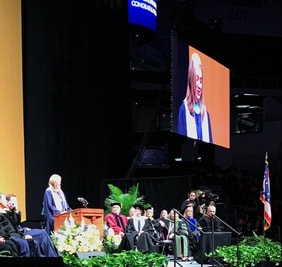 Are you thinking of teaching full-time? Many individuals find this to be a rewarding position and spend their entire working lives in this field. Schools are everywhere, even online, so there are an abundance of opportunities. There are several key points to consider, however, before pursuing this career path. For the best information, check out your state's Department of Education website. I will discuss my experience which may not be the same for all individuals. Who do you want to teach? Depending on the licensure that you are seeking, most are divided by grade level, content, or both. There is a huge range of licenses available and each has a different preparation process and a different amount of available opportunities. It is especially important to consider which positions are in high demand if you are committed to a certain geographical region. For instance, I qualify for a supplemental licensure in teaching drama, but, sadly, there are no positions that require that license in my area. Are you ready to put in the hours? Many take one look at teaching and only see the "summers off." Rarely do people account for all the hours that teachers actually put in. Day to day hours also include lesson planning, grading, and administrative duties in addition to actual teaching time. Educators are also asked to take on tasks like after-school detention, lunch duties, or other supervisory assignments. They could also be supporting students through extracurricular activities; including, sports, arts, class advisors, or any number of other clubs. Finally, just because you have your teaching license doesn't mean that you are done learning. Teachers must constantly be taking classes and earning continuing education credits to be able to keep their license current. What is the best way to earn your license? In my state, there are several options to earn your teaching license depending on if you are approaching the field as a first career or changing fields. If you are just starting out, most four year colleges offer an education degree. You do need to check to see which specific licenses they support. This can change over time. When I was in college getting my bachelor's, my school offered a program for those who were pursuing a license to teach drama or theatre. Now, that university no longer supports that licensure path, though they still help students get licenses in early education or those who hope to teach certain subjects in high school. This is another reason that it is important to decide what and who you want to teach. Not every school offers every license. There are a few different opportunities for those changing careers to earn a teaching license. Going back to get an education bachelors is always an option. If you already have a B.A. or B.S. or B.F.A, you may be able to apply for alternative licensure or gain licensure through a post-bachelor or masters program. The alternative program is offered through the state and is a relatively low cost option to learn the educational theories needed to teach specific subjects. These may include, but are not limited to: high school math, social studies, language arts, or science. All of this is based on what credits you have earned with your initial degree. Post-bach and master's programs are also excellent options and can help you start out at an increased salary, depending on your school district's contract. Remember, no matter what path you take there will be a student teaching component. This is several weeks of full-time teaching. It is time-consuming and includes having your teaching evaluated and often a large written component submitted. Know that if you are working another job, you will probably not be able to continue it at this time. Be sure to explore all your options before deciding the best route for you. Certain grants or loan forgiveness opportunities are also available for those who are licensed in a field of high need and work in a low income district. Beware, the schools on this list fluctuate from year to year (https://studentaid.gov/tcli/). Do your research. My path, as you may have noticed, is a little different from most. I had B.A.s in Theatre and Interdepartmental Science and a decade of varied work experience when I decided to pursue teaching. At that time, I thought the best option was to go through Western Governors University's M.A. Teaching, Science Education (Secondary) program. (Check out my graduation speech!) This allowed me an initial licensure in Life Science for grades 7-12. I, then, took a few classes with the University of Findlay to add Integrated Science to my license. Finally, when the pandemic hit, I took the time to make myself as marketable as possible by completing a second masters with WGU. This time I added Integrated Mathematics to my credentials.
There are a multitude of opportunities out there! Good luck learners!
0 Comments
Your comment will be posted after it is approved.
Leave a Reply. |
AuthorRayna Moore - ArchivesCategories
All
© 2021 by Rayna Moore
|
 RSS Feed
RSS Feed

